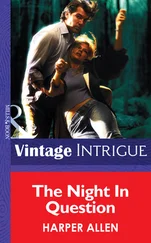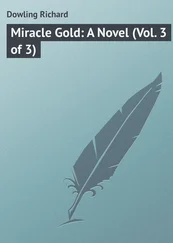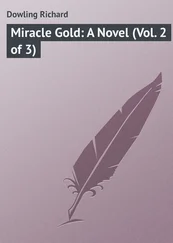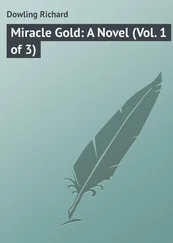Richard Gordon - A QUESTION OF GUILT
Здесь есть возможность читать онлайн «Richard Gordon - A QUESTION OF GUILT» весь текст электронной книги совершенно бесплатно (целиком полную версию без сокращений). В некоторых случаях можно слушать аудио, скачать через торрент в формате fb2 и присутствует краткое содержание. Жанр: Юмористическая проза, на английском языке. Описание произведения, (предисловие) а так же отзывы посетителей доступны на портале библиотеки ЛибКат.
- Название:A QUESTION OF GUILT
- Автор:
- Жанр:
- Год:неизвестен
- ISBN:нет данных
- Рейтинг книги:4 / 5. Голосов: 1
-
Избранное:Добавить в избранное
- Отзывы:
-
Ваша оценка:
- 80
- 1
- 2
- 3
- 4
- 5
A QUESTION OF GUILT: краткое содержание, описание и аннотация
Предлагаем к чтению аннотацию, описание, краткое содержание или предисловие (зависит от того, что написал сам автор книги «A QUESTION OF GUILT»). Если вы не нашли необходимую информацию о книге — напишите в комментариях, мы постараемся отыскать её.
A QUESTION OF GUILT — читать онлайн бесплатно полную книгу (весь текст) целиком
Ниже представлен текст книги, разбитый по страницам. Система сохранения места последней прочитанной страницы, позволяет с удобством читать онлайн бесплатно книгу «A QUESTION OF GUILT», без необходимости каждый раз заново искать на чём Вы остановились. Поставьте закладку, и сможете в любой момент перейти на страницу, на которой закончили чтение.
Интервал:
Закладка:
'That is for others to decide, not you.'
Eliot felt a strengthening of his feeling that Ruston was mentally unsound. 'Have the practical difficulties occurred to your friends? That we are in Holloway and he in Potsdam? That he is surrounded by a bodyguard who would esteem it a privilege dying to the last man?'
'Emperor William has been on the German throne almost 22 years. Do you know how many times he has visited this country? Eleven! As the King's nephew he's popular here, even if his country isn't.'
'If you shoot Kaiser Bill on his next trip, it won't prevent war, but provoke it.'
'That's the 'ole idea,' said Wince, still reading the paper.
Ruston had been striding the room while talking. He stopped, hands in the pockets of his tweed trousers. 'We know our Prussians. They've constructed the most wonderful military machine, which they're itching to get moving like the proud possessor of a brand-new Rolls-Royce. The Kaiser killed in Britain! Think of the excuse it gives the hotheads in Berlin. Once von Moltke's General Staff have started the engine and released the brake, nothing can stop it.'
Eliot sat abruptly next to Wince, who was relighting his pipe. 'And what use will a war be to the English working-man? Apart from ending his miseries by permitting him to be killed in it.'
'War brings revolution. The country's seething as it is. Look at the trade unions-gaining half-a-million members a year. Look at the wave of strikes. They're startling the old fuddy-duddy union leaders, scaring the bosses and terrifying the Government out of its wits. The election meant nothing, nothing. Both parties were the bosses' party. The workers are impatient for power. They're scornful of compromise. They're impatient to tear down the plywood barriers in their way.'
'Tonypandy,' added Wince lugubriously. 'The 'ole of the South Wales' coalfield's out. The workers 'ave rejected the advice of their own leaders, 'oo are acting a bunch o' cowards.'
'The bosses are using the one weapon they know and love,' Ruston continued forcefully. 'Starvation! I hope they'll succeed. They'll have the whole working class up in arms.'
There was silence broken by the bubbling of Wince's pipe. 'I disagree with you', said Eliot.
'You are not entitled to disagree with me. About anything.' Ruston picked up his umbrella and Irish hat. 'I only want to be reassured I can rely on you when the time comes?'
'I gave you my loyalty five years ago. I'm not the man to withdraw it the first time it's tested.'
They left Eliot with his legs stretched out, staring at the neglected fire. He had joined the British Revolutionary Movement while a medical student at St Bartholomew's. Like other young men, he wanted to see the world changed not in his lifetime but before he was thirty. He stirred uneasily on the sofa. If Ruston was not mad, he lived among political lunatics isolated from the real world like the inhabitants of H G Wells's _Country of the Blind,_ which he had just read in a magazine. In the cold, misty afternoon he was sweating. He was afraid of no one, but the prospect of helping murder a fellow-human, whether emperor or helpless cripple, terrified him. Had his father met the Kaiser, he would have courteously invited him to sherry at the Imperial Club rather than blowing his head off.
It was growing dark. Eliot threw coal on the fire and lit the gas. He wrote distractedly for a while, then threw down his pen and reached among the music-rolls for Beethoven's Sonata No. 14, the Moonlight. He sat on the sofa, staring into the flames. The music induced a dreaminess which he felt wickedly voluptuous. He pulled out his watch and sighed. In half an hour he must leave for the Metropolitan Music Hall, three or four miles away across Regent's Park in the Edgware Road.
Crippen had called at the surgery the previous Friday with a pressing invitation to share his box. Belle had a fortnight's engagement, an agonized week had been passed turning over her wardrobe. Eliot readily accepted. Watching Belle on the stage promised the fascination of watching Blondin cross Niagara Falls on a tightrope. He had picked up his hat and Burberry for the theatre when the doorbell jangled loudly. He wondered if Ruston had returned with a plot to kill the Czar as well. There was a timid tap at his door. He threw it open to reveal Nancy.
They grasped each other. For a minute, they were unable to speak.
'Why didn't you write or cable you were coming, dearest?' Eliot asked, still incredulous as they stood holding hands, staring at each other and laughing.
'Oh, I don't know…I wasn't sure I could go through with it, until I'd actually rung your doorbell.'
'You took a gamble. You might have found me living with another woman.'
'I didn't think you'd possibly find another to suit you. If you had, I'd have bowed out happily. After me, she would need to be a paragon.'
'How long are you staying?'
'I don't know.'
'Where?'
'I'm installed at the Savoy.'
'Move in here.'
'All right.'
Startled by the impulsiveness of invitation and acceptance, Eliot said, 'But your father. He wouldn't care for it at all.'
'I'll write I'm in clean lodgings for single ladies. He'll accept that. He accepted me walking the East Side slums this winter, climbing across tenement roofs with no more protection than a nurse's uniform.'
'You have made your life complicated.'
'Being in love with someone always brings complications. Otherwise, wouldn't there be empty shelves in the circulating libraries?'
'Now we're going to the music hall.'
'What?' _
He took her arm, as he had when firmly piloting her round London. 'I'm committed. I never chuck up my obligations to my friends.'
'Surely you could find somewhere more romantic?' she protested.
'Tonight's a memorable theatrical occasion. Come on.'
They hurried downstairs. Ruston, Wince and the Kaiser vanished from Eliot's mind.
They laughed all the way in the hansom. The attraction was Belle, Eliot explained, sparkling in the footlights after three years in the domestic dark. The reason for her revival was apparent in half a dozen ladies wearing long fur coats and elaborate hats, standing in a line with top-hatted gentlemen outside the brilliantly lit music hall facade. Placards declared OFFICIAL PICKET, MANAGEMENT UNFAIR TO ARTISTES, PLAYERS NOT PAUPERS. Eliot's preoccupation with the oppressed masses overlooked that they included the music-hall performers.
There was a national music-hall strike. Like all strikes, its causes seemed to outsiders mystifyingly trivial. An arbitrator had awarded the artistes matinee pay at one-seventh of the evening performance rate in one-show-a-night houses, one-twelfth in two-show-a-night houses. 'Barring' an artiste for a fortnight, from appearing again within a mile radius, was to be abolished for those earning under Ј40 a week. The music-hall managers rejected it. A National Alliance of artistes held a mass meeting in The Surrey Theatre, Will Crooks MP in the chair rousing them to 'Stand up and stand firm.'
The managers determined on strike-breaking. 'The names are not those of artistes as well known as those which it is customary to find in the bill,' Era wrote of the music-halls which stayed open. Hence Belle's chance, Eliot realized. Hence the picket-line evoking curiosity and amusement from the public as it pressed leaflets on them with the cheerfulness actors and actresses can never submerge in their activities, even attending each others' funerals.
Crippen was waiting in the foyer. He had a new grey frock coat with a bright orange tie and a lilac waistcoat. He was delighted to see Nancy. How gratifying for Belle to be viewed by a fellow-countrywoman on her great night. 'Haven't you noticed Belle's strong resemblance to Marie Lloyd?' he asked, leading them up the red-carpeted stairs to a two-guinea box. 'Do you know why she took the name 'Belle Elmore'? Because Marie Lloyd first appeared at the Royal Eagle calling herself 'Bella Delmere,'' he told them proudly.
Читать дальшеИнтервал:
Закладка:
Похожие книги на «A QUESTION OF GUILT»
Представляем Вашему вниманию похожие книги на «A QUESTION OF GUILT» списком для выбора. Мы отобрали схожую по названию и смыслу литературу в надежде предоставить читателям больше вариантов отыскать новые, интересные, ещё непрочитанные произведения.
Обсуждение, отзывы о книге «A QUESTION OF GUILT» и просто собственные мнения читателей. Оставьте ваши комментарии, напишите, что Вы думаете о произведении, его смысле или главных героях. Укажите что конкретно понравилось, а что нет, и почему Вы так считаете.






